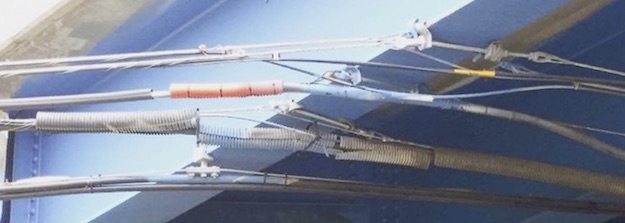
Pennsylvania is the latest state to begin an investigation of the condition of Verizon’s wireline networks. It’s in response to a complaint filed by the Communications Workers of America, the union representing Verizon’s employees. According to the petition…
For many years, [Verizon’s Pennsylvania subsidiary] has intentionally failed to maintain its physical plant in non-FiOS areas of the Commonwealth. The state of deterioration is now so advanced that poles are literally falling over, cables are sagging to the ground, animals and insects are infesting broken wiring cabinets…
[Verizon] is failing to provide safe facilities by refusing to 1) replace damaged, bent, and broken poles; 2) repair or replace damaged cross-connect boxes and remote terminals; 3) repair or replace damaged cable; and 4) properly control falling trees and vegetation near its facilities.
Similar complaints, from CWA as well as others, surfaced in California during Frontier Communication’s successful bid to get regulatory approval to buy Verizon’s wireline systems here. The California Public Utilities Commission is separately pursuing an investigation of the condition of those networks, as well as AT&T’s.
But that doesn’t mean that Verizon is giving up on wired networks completely. In fact, it’s expanding its fiber footprint, announcing plans to purchase XO Communications, a major independent fiber operator that offers both long haul and metro services.
Verizon’s strategy in California, and elsewhere, appears to be similar to AT&T’s: stop investing in maintaining or upgrading marginal copper networks, or dump them altogether, and focus on providing fiber to high density, and lucrative, commercial areas and high potential residences, as well as mobile services.
